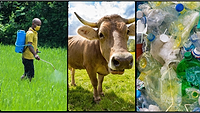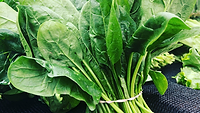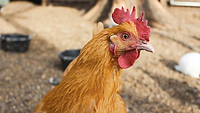Study Explores Food Safety Risks of Non-Traditional, Sustainable Agriculture Practices

Image credit: Redicul Pict via Unsplash
It is important to consider the potential food safety consequences of agricultural sustainability efforts to reduce water and chemical inputs, cut carbon emissions, and lower fuel and labor costs.
For example, a recent study found that, while alternative farming practices aimed at reducing water usage can lower greenhouse gas emissions and arsenic levels in rice, the same practices may also increase cadmium content in plants. The same study also demonstrated that no-till farming techniques raise the likelihood of mycotoxin contamination in crops. The study, led by Michigan State University researchers Christian Kelly Scott, Ph.D. and Felicia Wu, Ph.D., was published in Science of Food, and was supported by the Institute for the Advancement of Food and Nutrition Sciences (IAFNS) Food and Chemical Safety Committee.
Traditional flooded rice paddies tend to increase arsenic accumulation in rice, whereas the alternate wetting-drying method—allowing paddies to dry between irrigation—conserves water, lowers production costs, and reduces arsenic uptake from the soil. However, drier soil conditions can lead to higher cadmium absorption in rice plants.
The researchers stated that, from a health standpoint, it is important to weigh the levels of both arsenic and cadmium in each scenario (i.e., flooded rice patties versus wetting-drying) and assess their respective toxicities. The authors also emphasized that alternative farming practices are not one-size-fits-all solutions. Rice farmers can fine-tune the amount of flooding and drying to minimize both arsenic and cadmium levels in their crops.
The second half of the study focused on tilling—that is, turning the soil after harvest or before planting to clear crop residue and weeds. Some farmers adopt no-till practices, leaving crop residues on the field to preserve soil nutrients and prevent erosion.
However, no-till methods may allow harmful microbes to persist, increasing the risk of contamination for the next season’s crops. Of concern are mycotoxin-producing fungi, as mycotoxins have been linked to cancer, immune system suppression, and developmental issues in people, as well as harm to animals.
Given the serious health harms posed by mycotoxins, it is vital to weigh these food safety risks against the environmental benefits when considering no-till farming practices.
While sustainable agriculture offers promising environmental benefits, it is essential to carefully evaluate its potential food safety implications. Ongoing research is needed to identify and address unintended consequences of these practices, ensuring that adjustments can be made for safer outcomes.
Looking for a reprint of this article?
From high-res PDFs to custom plaques, order your copy today!







